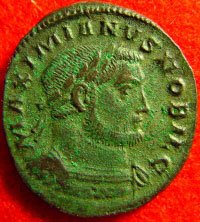
On All Saints' Day, when the Bulgarian Orthodox Church marks the Synaxis of All-Praiseworthy Twelve Apostles of Christ and the memory of all known and unknown martyrs and confessors of Christ, the laity in Bulgaria were rewarded for their faith...
The fate of the Saints Peter and Paul church in Sofia has had its ups and downs, it has been through all kinds of uncertainties. It is perhaps one of the lesser known churches in the capital city, but it is also the only one named after the apostles –..
"It was in the Bulgarian lands that the disciples of Cyril and Methodius created literary centres that made Bulgaria a second centre of Orthodox civilisation after Byzantium. Here was the foundation and the root from which the pan-Slavic culture drew..
The Bulgarian Orthodox church marks the assumption of St. Anna – the saint who gave birth to Maria, the future mother of Jesus Christ...
On the road leading from Sofia to Samokov upstream the Iskar River near the big picturesque bend between the former villages of Kokalyane and Pasarel at..

+359 2 9336 661
